It’s the question I’m asked most often on book tour…
“I’ve always wanted to write a book, but I don’t know where to start.”
Someone asks me a version of this question every time I’m on book tour, and I understand why. Writing a book seems like such a worthwhile pursuit, and such a satisfying achievement. But it’s also ridiculously complicated, and it takes forever.
Writing a book is much more like building a house, in terms of the time involved and the sheer variety of skills you have to deploy. Very few of us look at a house and think, “I could make one of those.” But writing a book? No problem!
The fact is, you can make a book—some sort of book—if you’re willing to think of it more like building a house, in terms of the time, effort, materials, and skills involved. Nobody wakes up in the morning, picks up a hammer, and says, “I’m going to build a house today.” Obviously you can’t start like that. You need a plan, and you need to work in stages: the utilities, the foundation, the frame, the roof…you get the idea.
Writing a book is like that. You can’t wake up in the morning and say, “Today I’m going to write that book.” But you can write a page. Or you can revise five pages. Or you can research that one thing, or conduct one interview. Do that enough days in a row, and eventually (and by eventually, I mean months or years from now), you’ll have a book.
January is the time of year when people tend to start new projects…
So I thought I’d take your questions on how to start a book. I’ve done it fourteen times (more if you count books I decided not to write and books in progress). Every time I start a book, it feels like I’m doing it for the first time and I’ve forgotten how the whole thing works. It’s intimidating! But here are my ideas about how to go about it, in the form of answers to your questions.
Lisa has a question about writing a cookbook for her family:
I've been trying to write and design a cookbook to give to my kids for years and I can't seem to finish it. I keep adding things and there always seem to be more holes I have to fill in different sections; I need to add more desserts, or stews, etc. Also, I feel like I need to have someone test the recipes but don't know how to go about that.
Any advice for me?
Lisa! This is the year you finish your cookbook!
Clearly this is important to you, because you’ve been working on it for years. None of us know what life is about to throw at us. If you have the time and headspace in 2025, get it done! Here’s what I would do:
Think of this as the first edition of your cookbook.
That lets you actually finish it now. The Joy of Cooking has gone through nine editions, and there’s always another one in the works. You can print a second edition later.
Re-think what “completeness” looks like.
Are you sure you need to fill all the holes? I’m assuming these are your recipes, meaning the dishes you particularly like to cook and want to pass on. In other words, your kids don’t need your cookbook to understand generally how to cook a stew. They can get that anywhere. They’d only need to know how to cook your particular stew. There could be whole categories of recipes (salads, breakfast, etc) that you could skip entirely if you don’t have a special recipe to offer. Your cookbook should be idiosyncratic and somewhat narrow in its focus, because it should just be about you and your dishes.
Organize it your way.
Speaking of holes, remember that you can organize your cookbook any way you want to! You don’t have to create sections based on the type of food (desserts, meat dishes, etc). You could organize it by season, or by occasion (Thanksgiving dishes, everyday weeknight dishes, big weekend family dinner, daughter’s favorite foods, meals that little kids will eat, etc.)
Or you could organize it according to the order in which these recipes came into your life, like a food biography! Start with the earliest recipes you learned to cook when you were young, continue on through the bewildering jello-and-cottage cheese years in the 1970s (I’m making some assumptions about your age here, feel free to substitute with your own decades), up to your most recent, perhaps wiser and more enlightened, favorites.
Make recipe testing easy on yourself.
As for testing recipes, if these are your recipes, meaning that they are either something you invented, or something that you read and adapted for your use, they’ve probably already been tested, yes? (and if you’re including recipes that you did not personally create, be sure to credit the source!)
But if you do need to test them, you’re simply going to have to start cooking them instead of whatever you’d otherwise be making for dinner. You can do what I did with The Drunken Botanist and post a list on the fridge, explain to your household members that these recipes need to be prepared according to your book’s instructions and tasted, and cross them off as you go. Encourage family members who cook to do the same.
Or, as Elizabeth suggested in the comments, hold a potluck and ask your guests to each test a recipe and bring it. If your guests are willing and able, you could tackle quite a few that way.
Find a cookbook style guide
Your recipes will be easier to follow if they adhere to standard recipe-writing protocols. I’m sure there are plenty of cookbook style guides out there, but here’s one example.
Add personal details
This is a family cookbook. Include family stories, photos, dates, details. Imagine your great-great-great grandchildren reading this cookbook. What would they want to know? Who is uncle Albert and why did he spend so much time in Slovenia and bring back that cabbage dish that you make every Christmas?
What about printing?
Search for “family cookbook printing” and you’ll find lots of services that will help with templates, layouts, and printing for your first edition. Some even offer hands-on help for an extra fee, which is probably money well spent for getting it over the finish line before next year’s holidays.
I received too many questions to answer in one week, so stay tuned for more!
And if you have a question about how to start a book, please just hit reply and ask me, or post it in the comments. I’ll try to get to it in a future installment!
Supporters are drawing BIRDS
I’ve drawn a lot of birds over the last few years, and I’ve come to believe that drawing birds will teach you how to draw just about everything. You learn a lot about proportion, shading, color-mixing, contour line drawing, and other fundamentals.
So even if you’re not really a bird person…you should draw some birds!
This week, we start with a flip-through of my bird sketchbooks, and then we’ll practice some basic pencil sketches. In the next few weeks, we’ll move on to watercolor, ink, colored pencil, and gouache. For a few bucks, you can join us!
The bit at the end
Order signed copies of my new book, The Tree Collectors, from Broadway Books here in Portland.
Come find me on Instagram, or see paintings for sale- Right here
Order signed copies of some of my books from my husband’s bookstore, or order my books and many books I love at Bookshop.org
Take one of my online writing or art classes here




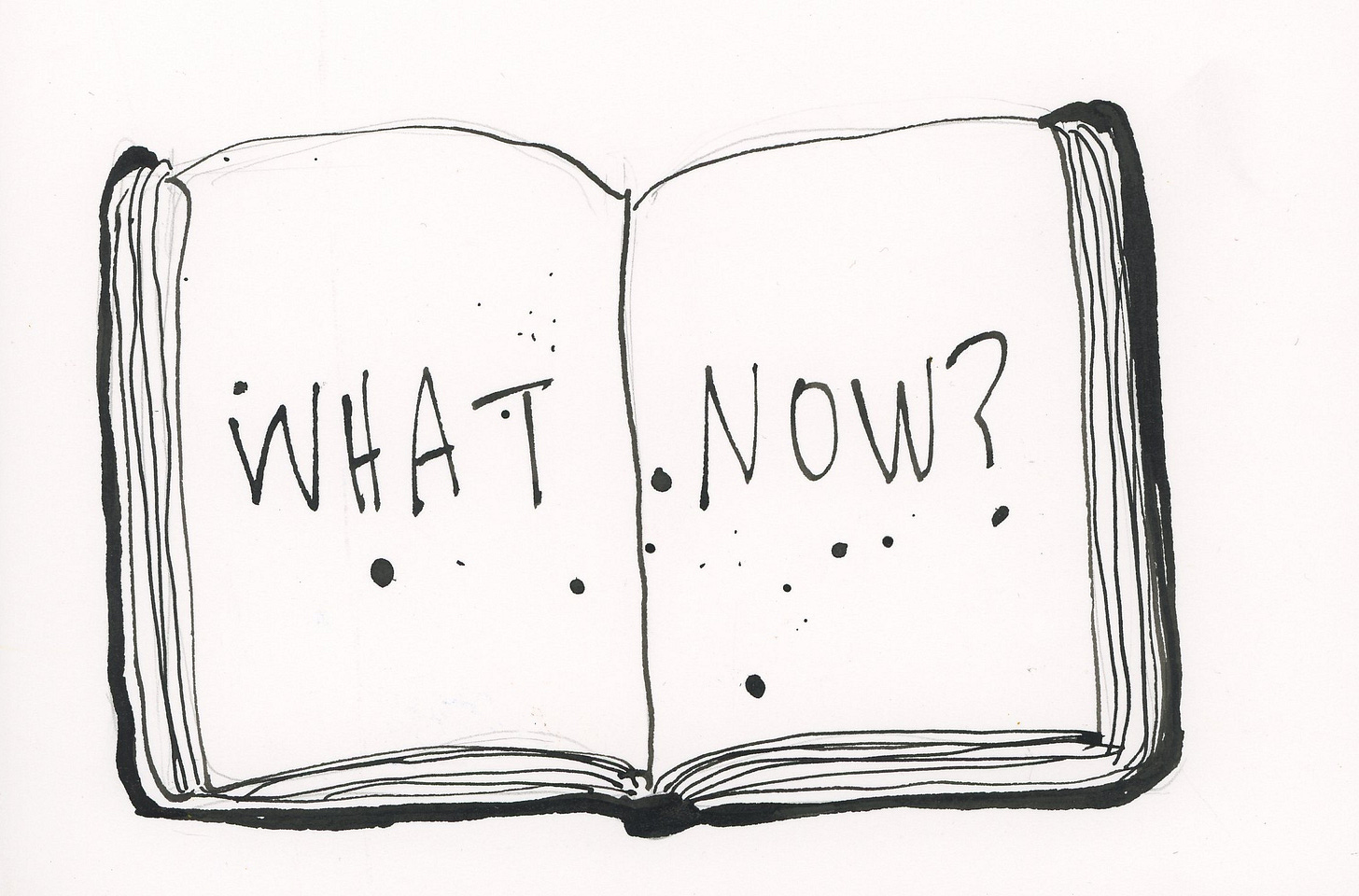
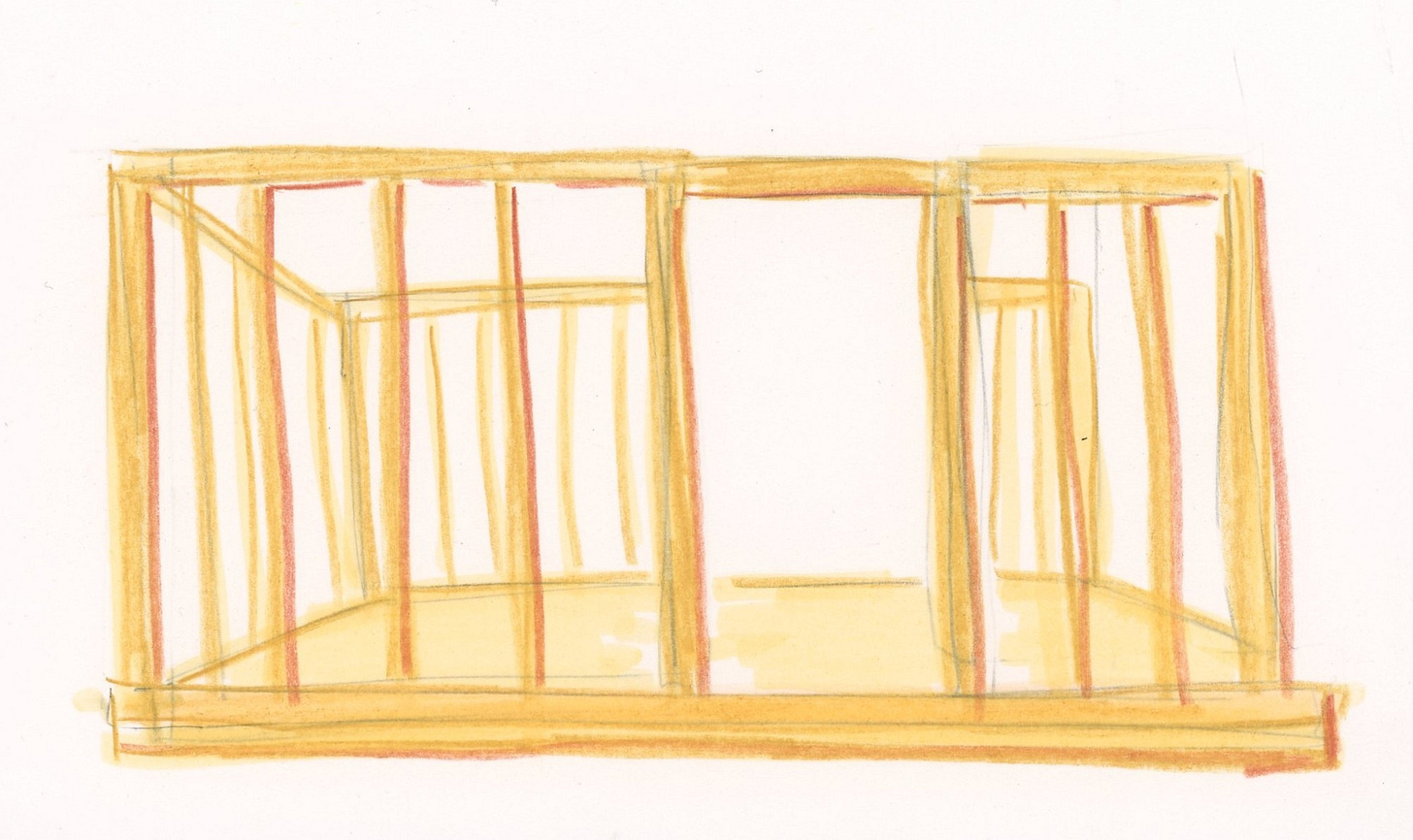
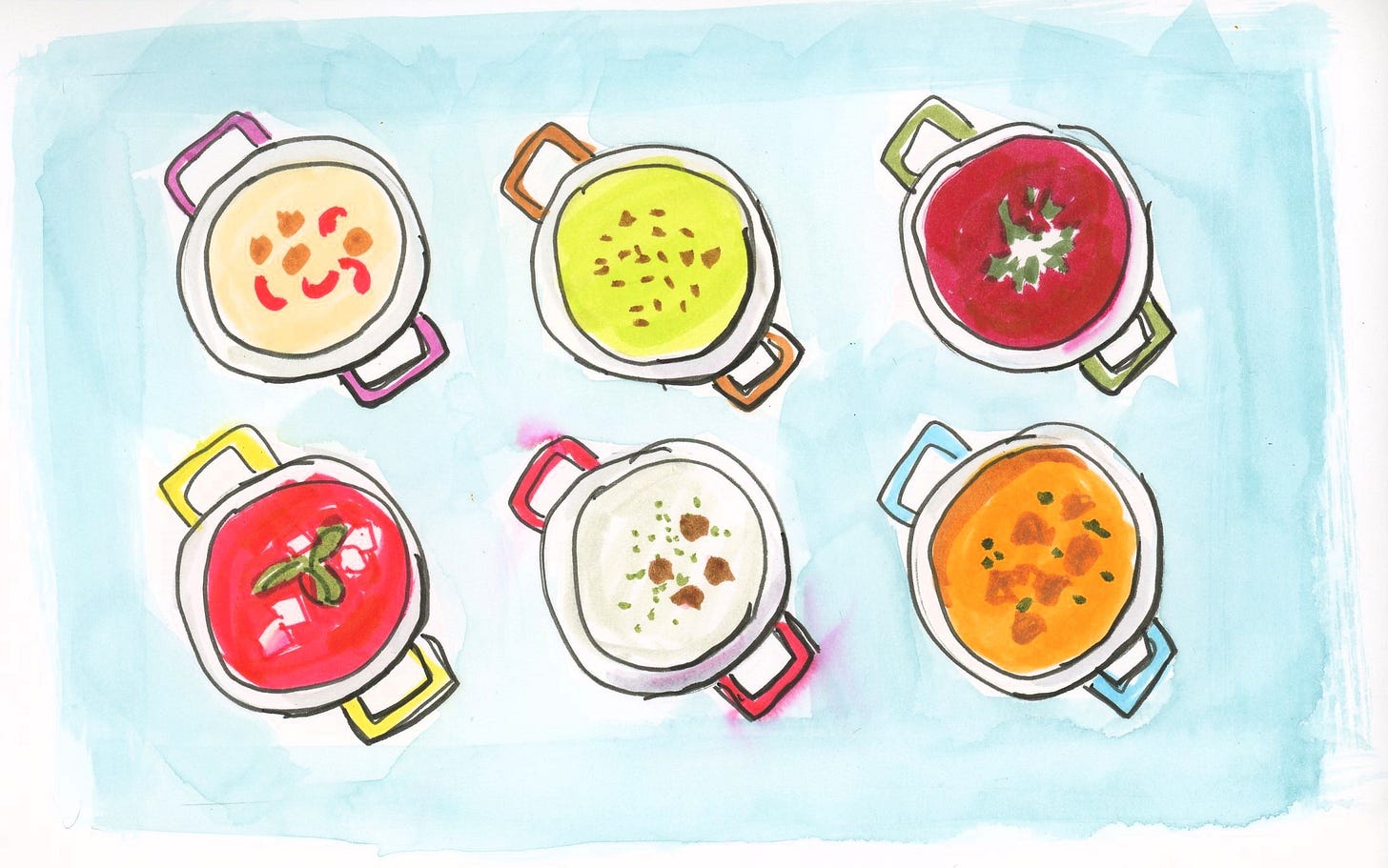
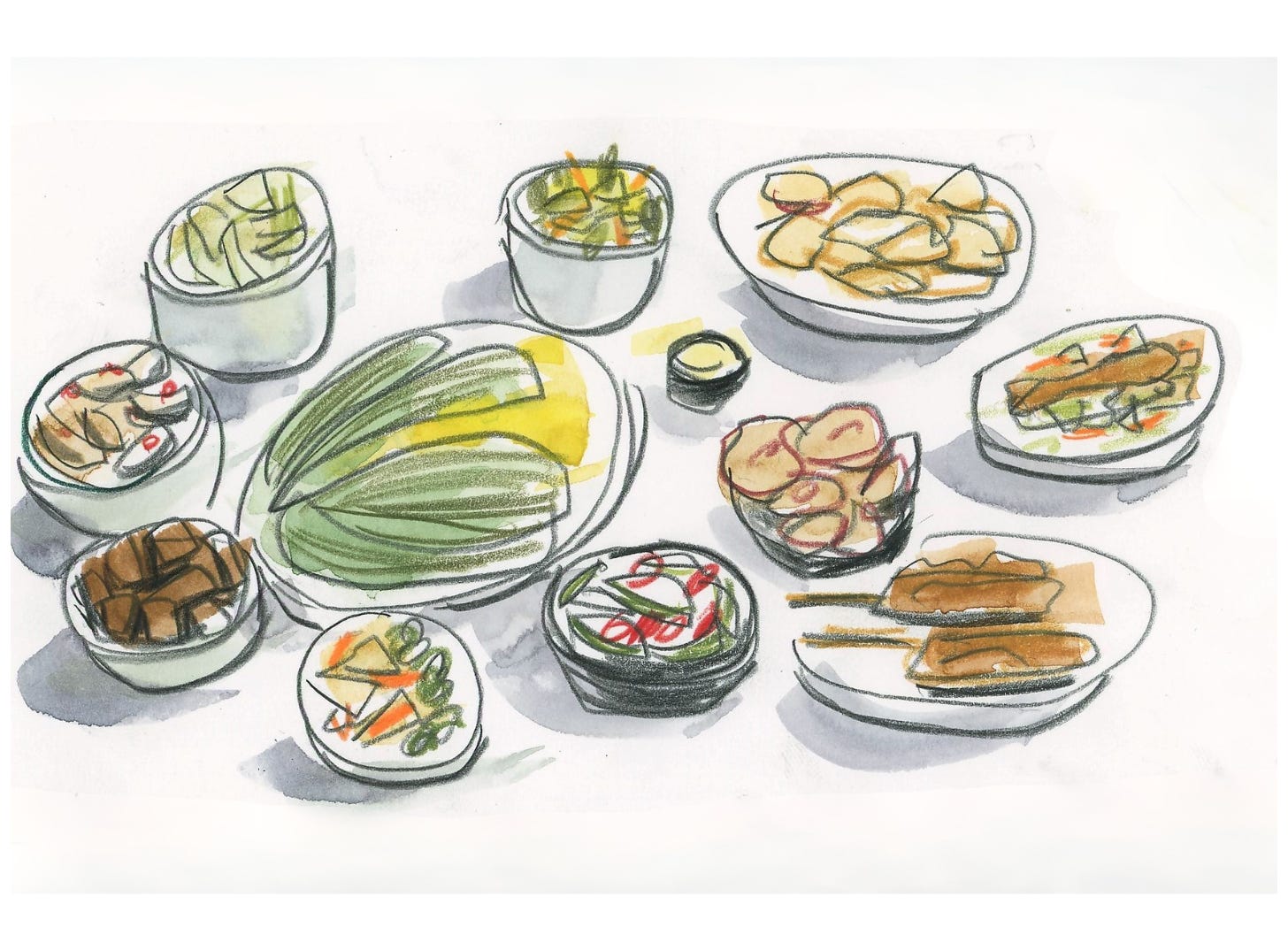
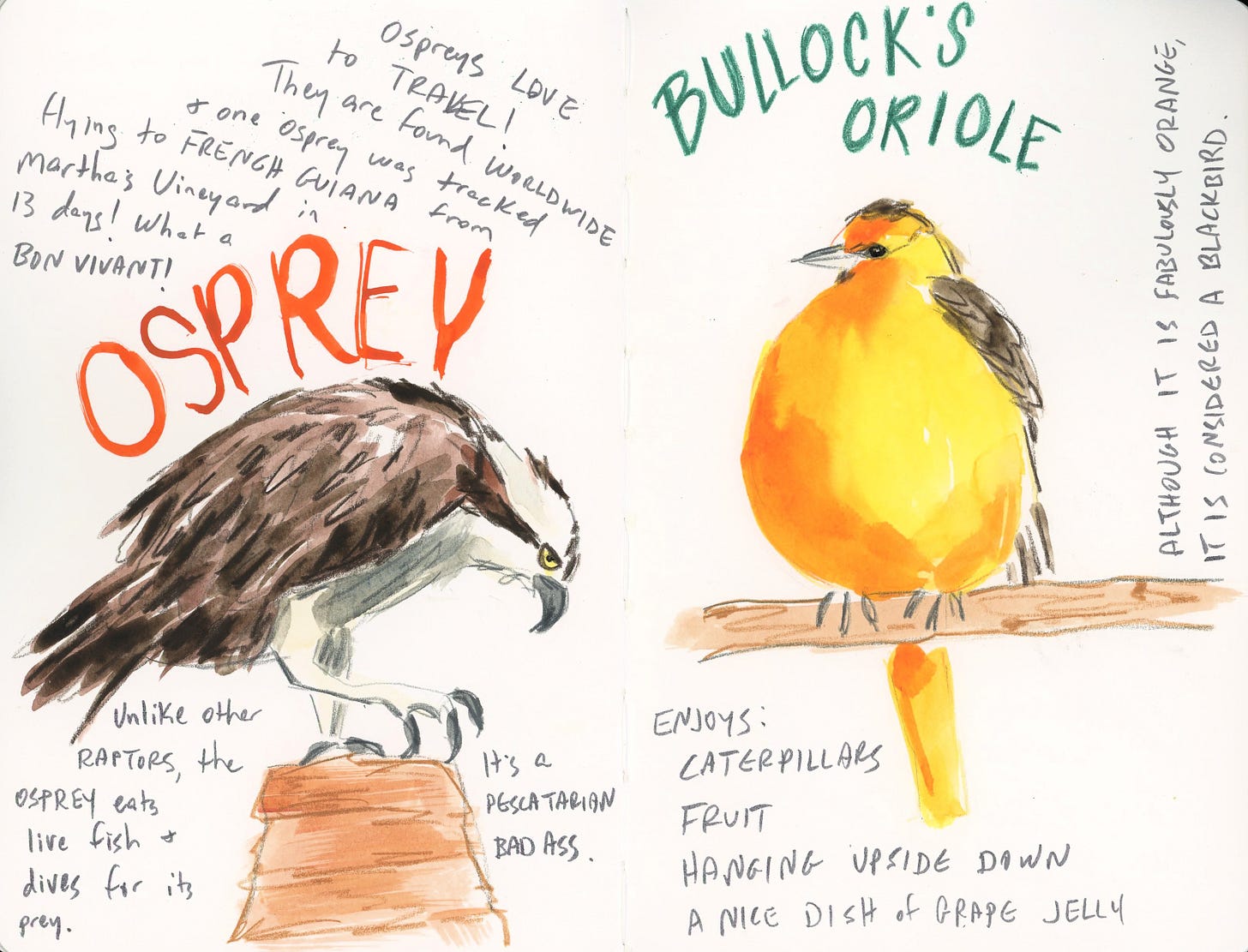
The fallacy I fell for, as I delayed and procrastinated starting my illustrated memoir, was this: Thinking I had to be ready, somehow, to start. In fact the only way to “get ready” IS to start, and see what revelations come along as you do the work. Write it now, improve it later. But write. Just write. One sentence (or recipe), and you’re on your way.
I am more wobbled than I should be by the fact that this (wonderful, inspiring) post appeared in my inbox on a Thursday, not a Friday.